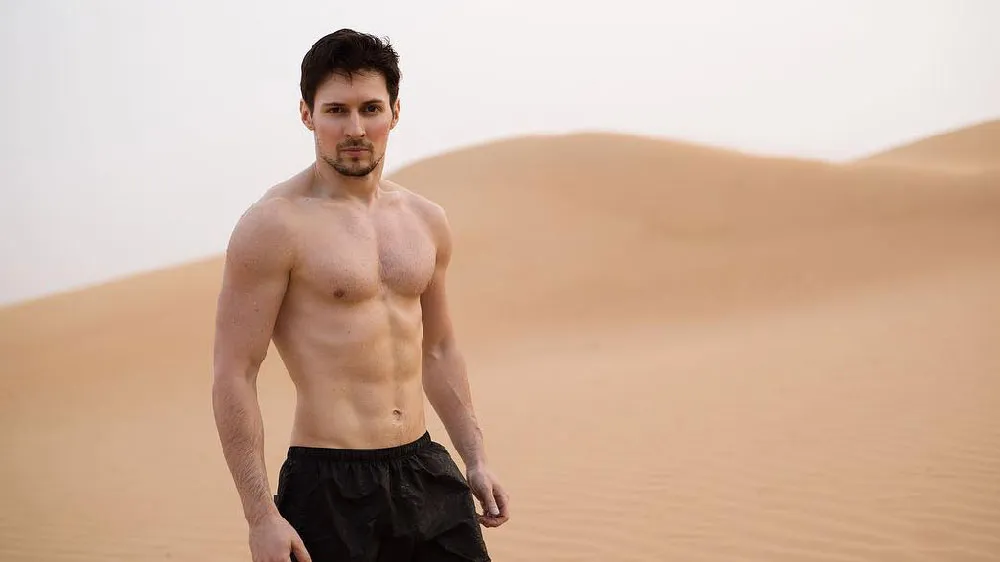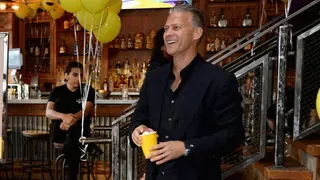May 19, 2024
2024 Cannes Dispatch 2: The Palais Filled with International Triumphs and a Legendary Disaster
Matthew Creith READ TIME: 7 MIN.
The second and third days of the 77th Cannes Film Festival assembled quite the buzz around The Croisette, starting in the early morning hours this week. After the beautiful opening ceremony honoring Greta Gerwig and Meryl Streep the night before the festival made its way to showcasing some more international features and huge Hollywood blockbuster premieres.
There was extreme excitement in the air as several highly anticipated movies were finally shown to a willing audience, though some might have wished their projects didn't see the light of day.
My festival experience continued with the unbelievably interesting film, "Wild Diamond" ("Diamant Brut"), the debut from French director Agathe Riedinger. A coming-of-age drama featuring the debut performance from the incredibly talented Malou Khebizi, the film explores social media culture and the downfalls it can take when people are more interested in amounting likes and followers than they are in the real world. It was a difficult watch in moments, cradled by the fact that only Khebizi's character of Liane is the most developed of anyone on the screen, including her friends, love interest, younger sister, and even the internet trolls that hound her existence.
Liane is a 19-year-old teenager obsessed with beauty and demonstrating her fake breasts on Instagram, often accompanied by her talents as an amateur dancer. She is so consumed by the idea of being famous and beautiful that she auditions for a reality show called "Miracle Island" as a way to gain more fandom. While she awaits the call saying she booked the coveted gig, Liane spirals out of control and contemplates nothing but making sure she becomes rich and famous.
"Wild Diamond" is a tough watch, but because of Khebizi's performance, the movie almost reaches perfection to a nauseating degree. Riedinger's direction is raw and uninhibited, using a faceless casting director for the reality show as an immoral compass for all of Liane's desires and life goals. It's a marvelous film debut for Khebizi. Still, the film harkens back to Aubrey Plaza's character in "Ingrid Goes West," trending toward darker territory, making me squirm, anticipating what could come next for our fateful anti-hero.
The next film on my agenda was the surprising "Simon of the Mountain" ("Simon de la Montaña") from Argentinian director Federico Luis. A semi-autobiographical movie selected in the Critics' Week category at Cannes, Lorenzo Ferro stars as the titular Simon, a 21-year-old looking for some purpose in his life. Simon is interviewed several times in the film, once in a location on a mountainside where he befriends a couple of disabled children. Another interview occurs during a psychiatric evaluation, and there's little context as to why Simon ended up where he is.
The movie is disjointed as we understand that Simon doesn't feel he belongs anywhere. It's mainly through Simon's experiences after meeting the disabled children that we learn more about the young man and how much he wants to change his present circumstances. The film is semi-improvised and based on Luis' own experiences with the disabled community, a group with which the character of Simon desperately wants to stay even though he isn't disabled himself.
"Simon of the Mountain" isn't for everyone, and many scenes left me wondering more about Simon than what is presented in the film. I wanted to understand more about the character and exactly why he feels attracted to the situations he finds himself in. Luis clearly wants his audience to realize that Simon desires independence amongst a community he doesn't belong to, though the movie doesn't drive home the point as eloquently as the director probably hoped it would. I left the screening more confused than I had wanted going into it, and it's not a film that's stayed with me since first viewing.
But Cannes isn't just known for international features and short films premiering on the world stage, as the famous festival launches some incredible Hollywood blockbusters that will surely put butts in seats in the United States and abroad. My next film was "Furiosa: A Mad Max Saga," the prequel to "Mad Max: Fury Road" and the fifth film in the franchise. Directed by longtime "Mad Max" creator George Miller, the movie stars Anya Taylor-Joy as the younger version of the character Furiosa, portrayed in the 2015 film by Charlize Theron.
"Furiosa" is undoubtedly chaotic in the best possible way. Anyone who's watched any of the "Mad Max" films will note how hyper-energized all of these films in the series are, largely due to Miller's directorial style, which incorporates high-octane action sequences in his native Australia. The film contains graphic sequences featuring actors Tom Burke and Chris Hemsworth, both at the top of their game as the love interest and villain, respectively.
But the real draw of this blockbuster is unquestionably Taylor-Joy, who unfortunately doesn't show up in the movie until about halfway through. Her character is seen mainly as a young child for the first hour, played by Alyla Browne, whose mother is killed by Hemsworth's Biker Horde leader, Dementus, and grows up striving to avenge her mother's death. Both Browne and Taylor-Joy are mute throughout most of the film, and the older version of the character has about 30 lines of dialogue in total.
Full transparency: I have never been an avid fan of the "Mad Max" film franchise, though I acknowledge its fandom and how impressive the weaving of CGI, musical score, and action sequences drive the story. "Furiosa" is no different, as I chose to watch the film during an 8:30 a.m. screening and was not prepared for how ferocious the sound and Taylor-Joy's performance would be so early in the day. Miller's direction is as top-notch as ever, but Taylor-Joy steals the show, sinking her teeth into every stunt, look, and drive possible.
Also, Tom Burke is super attractive in the movie. He's definitely an actor I want to see more of in future projects.
Next on the list came the opening film to the Un Certain Regard section of the festival, "When the Light Breaks" ("Ljósbrot"). Set in Iceland and directed by Rúnar Rúnarsson, the film stars Elín Hall as the pansexual Una, grieving the loss of the man (Baldur Einarsson) she's fallen in love with after he gets into a fatal car accident. Unfortunately for Una, the love of her life was having an affair with her, and she must console his grieving girlfriend while containing the secret of the affair that once brought her so much happiness.
A wildly complicated premise set in a cold Icelandic background (though it's supposed to be summer), "When the Light Breaks" broke my heart as the story follows Una through all of the stages of grief while hiding her dark secret. Assumed to be a lesbian by several of her friends, Una's secret love affair is kept hidden for a while until she can't hold in the tears of her unhappiness any longer. It's a remarkable turn by the gorgeous Elín Hall, aided by Rúnar Rúnarsson's poignant direction and often icy writing.
But the real draw of the festival came with the premiere of the highly anticipated film by Francis Ford Coppola, "Megalopolis." A passion project for the "The Godfather" and "Apocalypse Now" director, "Megalopolis" is his first film in over a decade. The buzz about the movie prior to the festival began when Coppola apparently showed the finished product to a group of major studio distributors before entering it in competition at Cannes, with every single distributor basically telling the legendary director, "Thanks but no thanks."
The press screening I attended was filled with journalists unsure if they would witness one of the best films ever made by one of the most iconic directors the industry has ever produced...or the biggest disaster of all time. After all, Coppola invested $120 million of his own money into the movie, which he conceived decades before and has been trying to make for quite a while.
I'm here to tell you...it wasn't for me.
I don't think I can accurately describe the plot of "Megalopolis" even after seeing the movie in its entirety, so here is Cannes' version of what it's about: "Megalopolis is a Roman epic set in an imaginary modern America in full decadence. The city of New Rome absolutely must change, which creates a major conflict between Caesar Catilina, a genius artist with the power to stop time, and the arch-conservative mayor Franklyn Cicero. The first dreams of an ideal utopian future while the second remains very attached to a regressive status quo protective of greed, privilege and private militias. The mayor's daughter and jet-setter Julia Cicero, in love with Cesar Catilina, is torn between the two men and will have to discover what seems best for the future of humanity."
Sure, we'll go with that.
Starring Adam Driver as Cesar, Aubrey Plaza as Wow Platinum (a journalist with a thirst for power), Giancarlo Esposito as Franklyn, Nathalie Emmanuel as his daughter Julia, and Shia LaBeouf as one of the villains in this rip-off of the Julius Cesar story, "Megalopolis" is a full-blown mess. Every actor on the screen plays caricatures of historical figures set in a futuristic dystopian world. The film is meant to be a warning for what our current political state of affairs might produce, but the message is completely drowned out by Coppola's overblown, and outdated, CGI usage and miscalculated dialogue.
The movie isn't even "so bad it's good," which would have been a pleasant surprise. What was a weird surprise was that in the middle of the screening, someone I assume was a paid actor arrived in front of the screen carrying a microphone, lights turned up, and proceeded to interview Cesar in a press conference style on screen. Everyone in the theater laughed, baffled by what had just occurred in real-time.
If "Megalopolis" receives proper distribution, I wonder if this experiment will carry over to IMAX film screenings. It was a wild addition to the festival experience, to say the least.
Cesar is often accused by his detractors of being gay, though he's in love with Julia. LaBeaouf's Clodio goes a long while wearing drag for an undetermined reason. As a gay man, I have to say that many of these instances struck the wrong chord with me, mainly because it seems that Coppola doesn't fully understand the modern world we live in today. As a director I admire, it wasn't the right type of characterizations audiences would typically expect from such a talented auteur.







